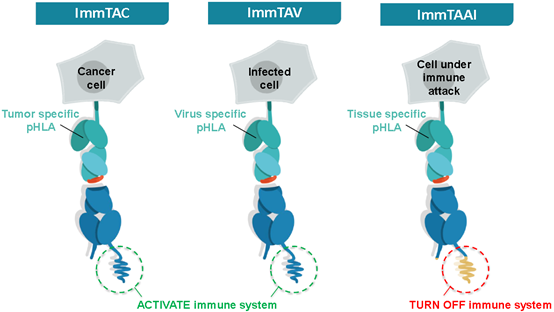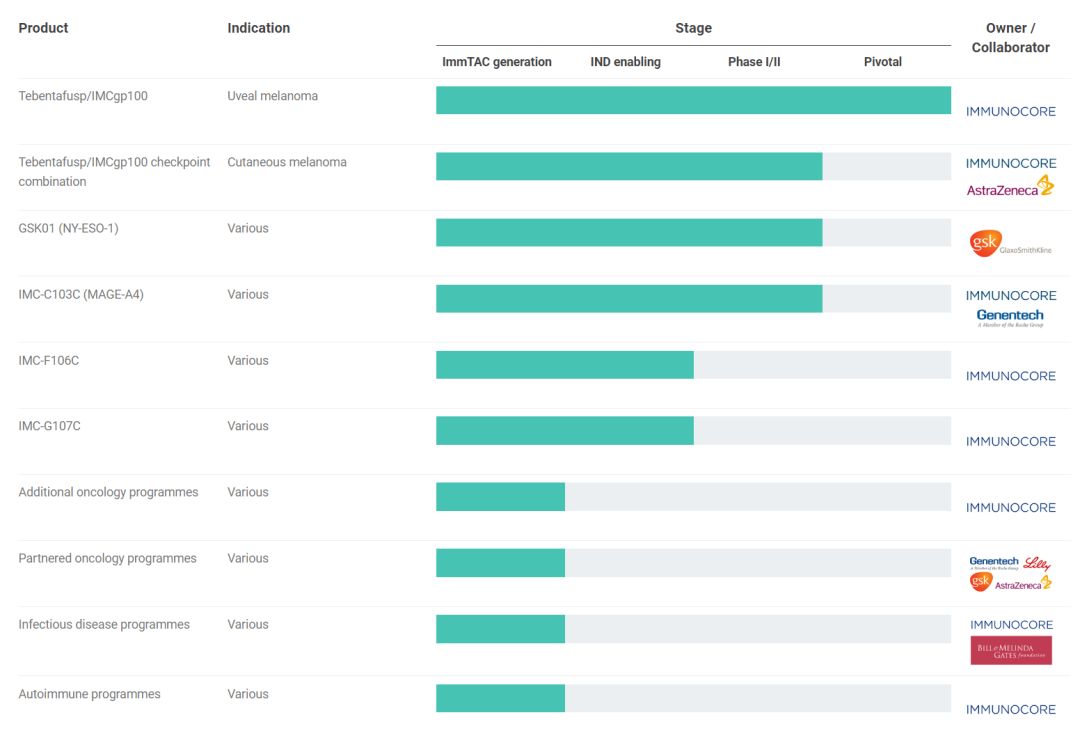Compared with PD-1 / PD-L1, it has better specificity and safety.
According to foreign media reports, a British unicorn biotech company focusing on developing T cell receptor (TCR) therapy Immunocore has completed $ 130 million in Series B financing. Leaded by General Atlantic, CCB International, JDRF T1D Fund, Rock Springs New shareholders such as Capital, Terra Magnum Capital Partners and Wuxi WuXi PharmaTech Venture Capital, as well as new shareholders such as Eli Lilly, RTW Investments and Bill & Melinda Gates Foundation Follow up.
It is reported that this round of financing funds will be used to promote the expansion of Immunocore and accelerate the development of three oncology projects on its ImmTAX ™ platform: the IMC-C103C (Targeted MAGE- A4), GSK01 (targeting NY-ESO-1) in cooperation with GlaxoSmithKline (GSK), and Tebentafusp (IMCgp100), its first drug candidate. In addition, the company will also promote two of its wholly-owned clinical phase projects for chronic hepatitis B and PRAME. Among them, Tebentafusp is undergoing key clinical research as a potential treatment for patients with metastatic uveal melanoma.

ImmTAX ™ technology platform (Image source: Immunocore official website)
Immunocore is a UK-based biotechnology company founded inIn 2008, its core technology was ImmTAC based on T cell receptors ( T cell receptor, TCR) ™ platform, ImmTAC full name Immune mobilisingmonoclonal TCRs Against Cancer, we can understand it as an antitumor immune agonistic monoclonal T cell receptor, it Essentially belongs to a new class of bispecific biological macromolecules, which are composed of engineered TCR and anti-CD3 scFv.
According to the medical report , theoretically, ImmTAC technology is better than PD-1 / PD-L1 antibodies have more advantages. Compared with other tumor immunotherapies such as PD-1 / PD-L1 antibodies, which target cell surface proteins, they have the disadvantages of higher toxic side effects, lack of tumor targeting specificity, and lower response rate; the ImmTAC technology platform is specific High-affinity TCR, which can recognize tumor-specific antigens, can target intracellular and extracellular targets, and recruits activated T cells to exert cell killing effects, which has better specificity and safety.

Immunocore’s pipeline under research (Image source: Immunocore’s official website)
Using this platform, Immunocore has developed a new class of bispecific biologics ImmTAC molecule, which has been favored by many large pharmaceutical companies, including Roche, AstraZeneca, Genentech, Glan Su Shike and Eli Lilly. In addition, relying on the ImmTAC ™ platform, Immunocore’s product line has more than 10 drugs under investigation (pictured), and most of them are used for tumor treatment.
Except for tumors, Immunocore is in infectious diseasesThere is also a layout of autoimmune diseases, that is, its TCR technology platform is applied to viruses or bacteria. The target indications to be developed include AIDS, chronic hepatitis B and tuberculosis; for autoimmune diseases, corresponding immune mobilization of monoclonal TCRs molecules It consists of a targeted TCR fused with effector function, which can selectively trigger immunosuppression in target tissues.
It is understood that this financing is also expected to accelerate the development of a new platform for Immunocore’s treatment of autoimmune diseases including type 1 diabetes (including cooperation with JDRF), and promote the TCR platform to expand its rich target database.
It is reported that CAR-T introduced a CAR antibody that was redesigned by scientists, and TCR-T introduced a naturally-occurring TCR. By increasing the activity of TCR, cancer cells were enhanced. Lethality. In addition, TCR-T can not only recognize tumor-specific antigens or tumor-associated antigens on the cell surface, but also recognize tumor-specific antigens or tumor-associated antigens in cells, which makes it useful in the treatment of solid tumors. Aspect has advantages.
Therefore, TCR-T has become a research hotspot. Many companies have developed TCR-T cell therapy based on TCR receptors, such as Fosun Kate, WuXi Juno, Xiangxue Pharmaceutical, Glan Su Shike, Genentech under Roche, Kite under Gilead, etc. Among them, Adaptimmune is a direct competitor of Immunocore. It is reported that the Adaptimmune SPEAR (Specific Peptide Enhanced Affinity Receptor) T cell platform can pass The modification of T cells generates high-affinity enhanced TCR, which targets and destroys a variety of tumors.